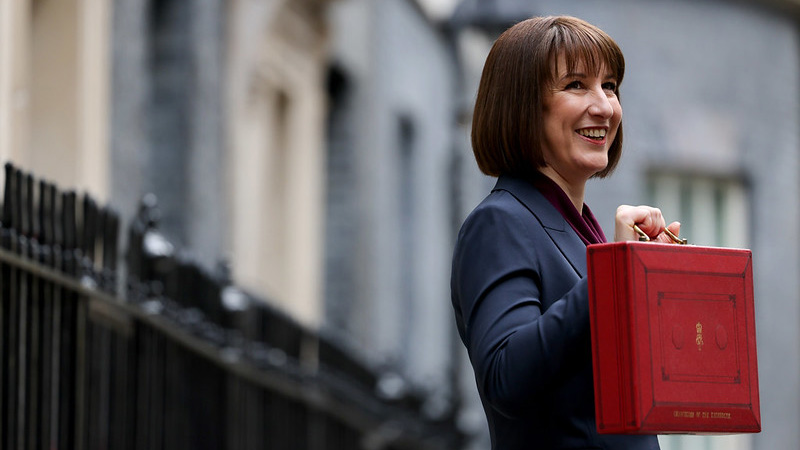Inflation as measured by the Consumer Price Index will average 2.5% for 2024, according to forecasts from the Office for Budget Responsibility (OBR) in the UK Government’s 2024 Autumn Budget.
In a speech by Chancellor of the Exchequer Rachel Reeves (pictured), it was revealed the OBR predicts inflation to average at 2.6% for 2025, 2.3% in 2026, 2.1% in 2027, 2.1% in 2028 and 2% in 2029.
In terms of economic growth, Chancellor Reeves said the OBR has not only published five-year growth forecasts, but “detailed assessments of growth policies over the next decade”, which, she said, will “become a permanent feature” of Labour’s framework.
Real GDP is estimated to come in at 1.1% for this year, 2% in 2025, 1.8% in 2026, 1.5% in 2027, 1.5% in 2028 and 1.6% in 2029. While this is faster than was previously forecast for 2024 and 2025, growth projections have reduced for 2026, 2027 and 2028.
See also: Autumn Budget 2024: Capital gains tax hiked to 24%
Following a review by the OBR conducted earlier this year, however, the body found the previous Conservative government “did not provide the OBR with all the information to them”. Had they known, according to Reeves, the Spring Budget forecast would have been “materially different” – therefore making it difficult to compare figures.
In terms of government debt, the OBR predicts the country will be in deficit by £26.2bn in 2025, but will reach a surplus of £10.9bn during the 2027/28 fiscal year. This will fall slightly to £9.4bn in 2028/29, then tick upwards to £9.9bn by 2029/30, which, Reeves said, will meet Labour’s ‘stability rule’ two years early.
“Economic growth will be our mission for the duration of this parliament,” Reeves said. “Our stability rule means we will bring the current budget into balance so we do not need to borrow to fund day-to-day funding. We will meet this in 2029/30.”










